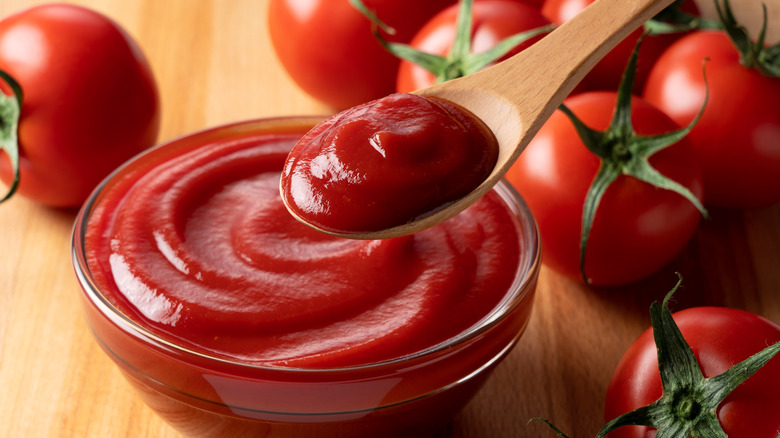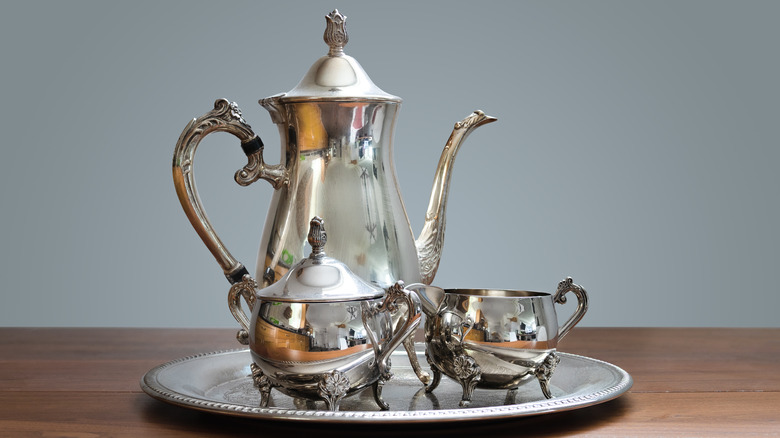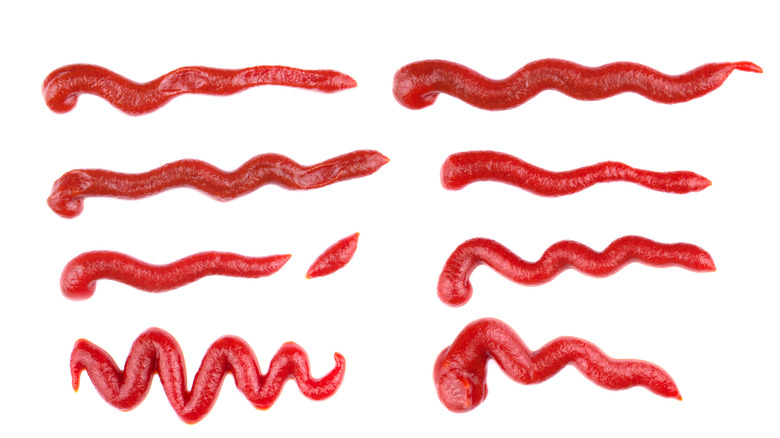Can You Really Clean Silver With Ketchup?
When it comes to sales in the U.S., ketchup is a distant second to mayonnaise, according to a Quartz report published in People. But can mayo clean silver? Unquestionably not. However, ketchup definitely does. And so can salsa, chili sauce, and tomato sauce. Tomato and vinegar-based condiments are natural remedies for removing tarnish from some metals, and in a matter of minutes it can restore the shine to a dull and blackened piece of silver.
Ketchup's antecedents date back thousands of years to Vietnam, later to China. Per National Geographic, sailors in those countries relied on a long-lasting, fermented soy sauce containing fish and meat called koe-cheup. The condiment went through various permutations until a Philadelphia scientist concocted a tomato-based version. It was the forerunner of today's ketchup, or catsup if you prefer.
Silver was initially extracted more than 5,000 years ago in what is now Turkey. Pure silver never tarnishes. It is also so soft that it is typically combined with other metals, notably copper, in order to be usable. However, making it a harder alloy also renders it vulnerable to tarnishing, according to Invaluable. That's where ketchup comes in. The acetic acid in tomatoes and vinegar is a natural tarnish buster. Dabbing ketchup on your cutlery or silverware, or even submerging them in the stuff, will make the silver shine for your ketchup-slathered burger, eggs, or fries.
Ketchup gently polishes silver
Ketchup is not highly acidic. However, the acetic acid in it will react with oxidized surfaces. Ketchup's pH level is therefore sufficient for breaking down the tarnish-causing carbon on silver. It is also a gentler alternative to commercial polishers, which typically shine silver by dissolving a thin surface layer, as The Cleaning Mommy explains.
To clean a limited area, take a small amount of ketchup and rub it on using a paper towel, soft sponge, or rag. A soft toothbrush is useful for accessing hard to reach spots. Never use a brush with hard bristles which may scratch the silver's surface. Keep the ketchup on for several minutes if needed, then rinse thoroughly with warm water; emphasis on thoroughly. Your item may no longer be tarnished, but failing to remove the ketchup is apt to leave it with an odor, Something Borrowed warns. You can also use a clean, soft toothbrush to remove any ketchup stuck in nooks and crannies. Rub the formerly tarnished item with a soft cloth to dry and polish. If this approach fails to satisfactorily remove all of the tarnish, the silver piece can be dipped in the red sauce and kept there for up to 20 minutes. Monitor this process, as too-prolonged exposure to the acid could potentially damage the silver patina.
Some drawbacks too
The process of cleaning silver with ketchup does have its drawbacks. Silver-plated pieces have a thin coating which may incur damage from the acid. Sterling silver, which is 92.5% pure, also may not react as well with ketchup as does fine silver, according to Science Notes. Caution is recommended when cleaning both types. Some of those who tried ketchup, reported The Daily Mail, were disappointed by inadequate tarnish-removing results. Others noticed that the condiment left a pink discoloration in its wake.
Cleaning with ketchup may not be advisable if the silver is attached to fabric. A difficult-to-remove stain may be the unfortunate result. Similarly, silver door knobs and ketchup are not a good mix because the adjacent wood could end up stained, per Cleanipedia. Amazingly, though, ketchup can also come in handy for cleaning grime from your car. And should you be short on ketchup, or reluctant to use it to clean your prized silver, consider this: Banana peels, aluminum foil, lemon-lime soda, and toothpaste might also do the trick.


